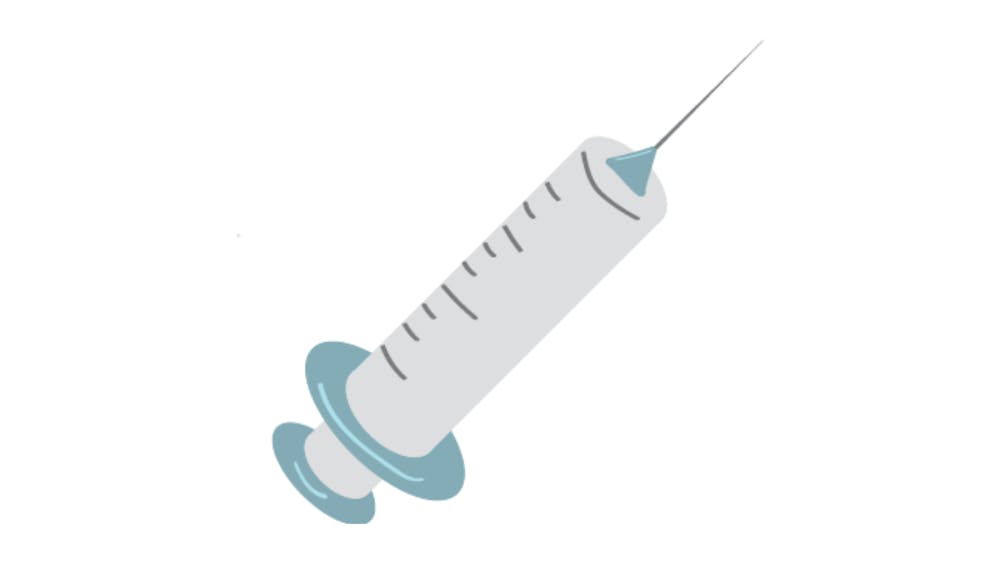Influenza, also known as the flu, is a virus that causes congestion, coughing and high fevers. It is spread in a similar manner to COVID-19, through respiratory droplets from sneezing or coughing.

In response to lowering COVID-19 case numbers, Elon transitioned to a mask-optional policy March 14, 2022, meaning this will be Elon’s first flu season without enforced pandemic precautions.
Eryn Bernardy, professor of biology, shared what to expect for the upcoming flu season.
How does the flu affect the human body?
“It mainly infects our upper respiratory tract: your nose, your throat and the top part of your lungs. It causes things like congestion, cough, a high fever – that’s very indicative of flu; body aches because the flu is very good at stealing your water, and it makes your muscles really painful. Those are the typical symptoms of the flu.”
How is the flu transmitted?
“Same like COVID. Respiratory droplets, sneezing, coughing. Basically if you wipe your snot and you hold or shake somebody’s hand, or if you sneeze on the table and someone grabs it, if you touch someone’s dirty tissues, all transmitting the same way that COVID transmits.”
What are the basic ways which people can prepare for the flu season?
“Thankfully, it’s things we’ve all been used to for the past couple of years. Wash your hands frequently, go get checked up if you feel any symptoms at all, get your flu vaccine. They’re similar to the COVID vaccine. They’re not perfect at preventing you from getting the flu, but it will prevent you from severe illness, just like the COVID vaccine.
Also, masks are not just for COVID. If you feel symptoms, wear a mask. It will protect the people around you. If you hear someone coughing, wear a mask. I carry a mask with me at all times because if my students are sneezing and coughing in class, then I put on a mask. I have a 1 year old to think about at home, and so I’m wearing my mask more than other people. But yeah, same things we’ve been doing. Wash your hands, get the vaccine, be vigilant. If someone is sneezing or coughing around you, leave or meet outside.”
Are there any specific measures that students should take inside a classroom or social setting?
“I would just wipe down a surface again if you see someone sneezing or coughing, maybe sit outside or put on your mask, or before you take it off to eat, go in a corner, maybe take your lunch out rather than sit inside. Same things we’ve been doing with COVID will help you with the flu.”
Are there any people who would be considered high-risk for the flu?
“Anyone that’s immunocompromised. One great thing about COVID, even though it’s horrible, is that people got a lot more education about their own health. So if you’re on an immunocompromised list for COVID, you’re still at a high risk for flu. People that are around people who are immunocompromised; the elderly and infants, usually under the age of three and above the age of 65, they’re at high risk, and then anyone that’s immunocompromised in between those ages as well.”
Are there any extra measures that immunocompromised people can take?
“They have special vaccines for those individuals. People over the age of 65 get a different flu shot than we do. It’s supposed to help with a stronger immune response. The kids don’t get a different flu vaccine from my knowledge. A lot of people that are immunocompromised might just want to avoid indoor, big social settings similar to what they did during COVID, or wear their masks when they are in those settings.”
Will the flu stack up on other diseases and viruses like COVID or monkeypox?
“No. There will be two different viruses. You’re unlikely to get them at the same time, though it’s possible. It would be separate for sure. It’s not going to make any one thing worse. Your immune system is going to be working on the flu just like it will be working on COVID. So overall you might feel worse, but that is going to be because you’re being infected by two viruses at once. But I would find it rare to be infected with both at the same time because everyone has such high immunity to COVID now. It’s still possible but it’s not going to make anything particularly worse.
We haven’t been hearing about the flu for the past two years because it hasn’t been rampant since people have been masking up and not hanging out and doing all these things. So we expect this is going to be a worse flu season than we have seen in the last couple of years just because most people haven’t gotten it due to the COVID precautions and quarantines we’ve been taking.”


